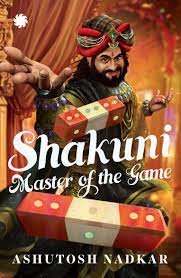Lessons from the Mahabharata
Lessons from the Mahabharata
By: Ahana Raghavan, 14 years
For: Gurukulam – The Online Shloka Learning Centre
- Being a woman does not make you inferior by any means.
Draupadi is a perfect example of a woman who was made to feel inferior but overall, rose from the ashes and showed her strength. She was disrespected but then vowed to wash her hair with the blood of those who wronged her, getting her justice in the end. Being a woman was not a weakness for her, it was a strength.
Courtesy of: Google Images
- Greed does no good.
When Yudhishthira was playing dice with Duryodhana and Shakuni, he gambled away his kingdom, wealth, brothers, and even his wife! First of all, he had no right to gamble away his brothers and wife, but secondly, the consequences of his actions stemmed from one problem, greed. Greed does no good for anyone, and you should not succumb to its temptations.
Courtesy of: Google Images
- Do what’s right, no matter how hard it might be.
When Arjuna was faced with fighting his own family, he was hesitant to do the right thing. However, Krishna assured him that doing the right thing was his duty (Dharma), and no matter how hard it might be, he had to fight his own kin.
- Loyal friendship can save even a lost cause.
The Pandavas had Lord Krishna by their side, and he helped them through even the hardest of times. For example, Lord Krishna used his wits to help the Pandavas and was very caring. He helped reassure them in many scenarios, the most commonly known being him comforting Arjuna (as covered in the Bhagavad Gita).
- Letting your emotions cloud decision-making can affect more people than just you.
Dhritrashtra was blinded by love for his son and could not maintain his principles. He had to make his son happy, and this fueled his son’s evil intentions. Believing that he could get anything he wanted, Duryodhana became incredibly evil, and this was one major cause of the war. As they say, “Love is blind.”
- Learning throughout life is essential.
Arjuna absorbed everything along the way. He was fascinated by every potential piece of knowledge and treated those close to him as his mentors. This led him to learn military science from Drona and information on divine weapons from Indra.
- Half knowledge can be worse than no knowledge at all.
Abhimanyu, Arjuna’s beloved son, died a painful death due to his half-knowledge. He knew how to penetrate the Chakravyuha (a military formation of defensive walls in a labyrinth shape used to surround enemies), but he did not know how to exit the formation. He was cruelly slaughtered by many of the Kauravas, due to a direct order given by Drona. His death was celebrated by all of the Kauravas, showing that sometimes it is better not to know than to only know half of the story.
Wonderfully Helpful References:
- https://www.indiatoday.in/lifestyle/culture/story/mahabharata-epic-narrative-life-lessons-way-of-living-lifest-972070-2017-04-18
- https://www.indiatimes.com/culture/who-we-are/15-important-life-lessons-from-the-mahabharata-that-are-relevant-even-today-230891.html


